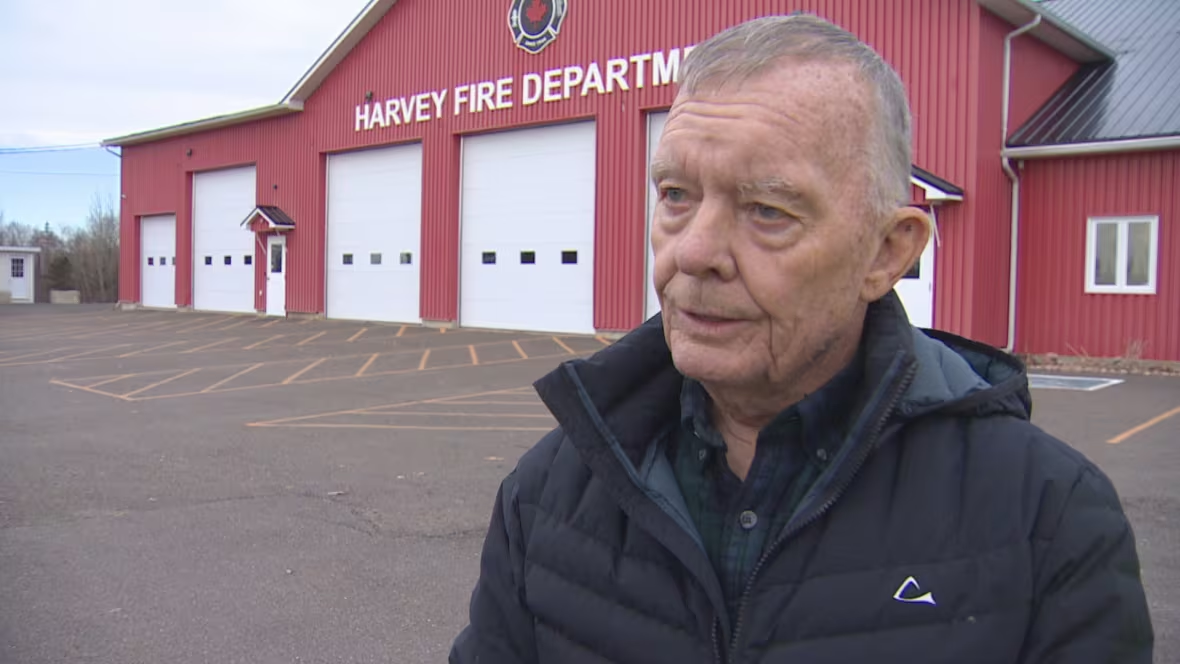Years of reduced spending on tree clearing preceded major N.B. Power outage
Utility reduced spending on 'vegetation management' after 2018, including major cut this year

N.B. Power is blaming trees being pushed onto power lines by high winds for the severity of outages that struck more than 100,000 of its customers this week.
But so far the utility isn't saying if a reduction it implemented in its power line tree-cutting programs over the last six years, including a big reduction this year, is part of what went wrong.
"The most significant contribution for outages are fallen trees and vegetation on lines," N.B. Power spokesperson Dominique Couture said on Wednesday in an interview with CBC's Information Morning Fredericton.
"We do proactive tree maintenance all around the year but the reality is we cannot cut off all of the trees, and in this case we are seeing very large uprooted trees on our lines."
Arthur knocked out power for 200,000 customers
N.B. Power has an annual tree-cutting program along transmission and distribution lines that it expanded in 2014. That's the year post-tropical storm Arthur blew through New Brunswick, knocking out electricity to more than 200,000 N.B. Power customers, some for more than a week.
Trees hitting power lines caused many of the blackouts in that event as well, triggering a multi-year, multimillion-dollar effort by N.B. Power to "widen" distances between trees and more than 6,000 kilometres of its power-line corridors.
Spending by N.B. Power on managing tree growth along power lines peaked in the 2018 fiscal year at $15.5. million, a 48 per cent increase from what the utility spent in the year before Arthur hit.
Former N.B. Power president Gaetan Thomas said climate change was causing vegetation to grow faster and the utility had to increase what it spends on cutting to keep up.

"We've seen tree branches grow by eight feet in one summer," Thomas told CBC News in 2015.
"We've had certified arborists that have been consulted and they're saying they've never seen something like that."
However, with N.B. Power under increasing financial pressure, spending on clearing power lines fell back to $12.5 million in 2019 and then reduced further to $12 million in 2021 and 2022.
In 2022, the utility initially budgeted to return spending on power-line tree clearing back above the $15-million level but ultimately left $3.1 million of that amount unspent.
Wind damage from Monday's storm was severe in several locations and outages were inevitable no matter how much tree clearing had been done beforehand.
Richard Corey, the mayor of Harvey-Royal, said in his area the storm was more destructive than anything he has witnessed before and that includes Arthur.
"The wind was the most noise and tree-moving event that I ever remember in my 74 years in this community," said Corey.
"It was frightening."

But according to statements made by N.B. Power in the past, power-line corridors that have been fully widened and kept clear do suffer less severe damage and are more quickly repaired than those that grow over.
Dan Cleveland, who lives on Fredericton's north side near the Nashwaaksis River, lost power Monday and wrote to Information Morning on Wednesday to say "three dead pine trees" fell on lines near his house that should have been cleared out years ago.
"So when a N.B. Power spokesperson talks about their vegetation program, my body gets warmed as my Irish temper rises," wrote Cleveland.
At its most recent rate hearing in front of the Energy and Utilities Board last winter, N.B. Power proposed a $2.2 million reduction in this year's power line tree-trimming budget, the largest scheduled decrease in more than a decade.

It conceded the move was designed solely to achieve better bottom-line financial results and "could have an impact" on the frequency and duration of outages experienced by customers during the year. But the utility predicted previous tree- trimming efforts would be enough to prevent any major trouble.
"Based on the progress in recent years to place more time, effort and budget on vegetation activities, the one-time reduction is believed to be of limited risk," N.B. Power wrote in its evidence.
Where that $2.2 million would have been spent, and what effect it might have had on the current outages is unknown.
In an email, Couture said N.B. Power has "optimized spending" by using technology to pinpoint areas in need of cutting. She said "strategic investments" have replaced "broad brush approaches to vegetation management, which are more costly and less effective."
However, with reduced amounts being spent since 2018, figures do show outages have been worsening. According to the utility's most recent annual report, N.B. Power customers experienced an average of 2.42 outages in the 2023 fiscal year that lasted for an average of 6.95 hours each.
That is 16.8 hours without power for the year for the average customer, 40 per cent higher than four years ago and 60 per cent higher than targets N.B. Power had set for itself.

